The horrors of more than 300 children abused at Mount Cashel orphanage in St. John’s came to light while Seamus O’Regan grew up in the same province. The message for him, son of a judge, was the need to think critically when power commands. “What marked me as a boy in Newfoundland was Mount Cashel. People deferred to authority back then, and I saw where that could go.”
Today O’Regan is Canada’s minister of natural resources, with much power at his own command. He self-describes as an essentially private person. It is hard to imagine a more public life.
Happenstance carried O’Regan into an unanticipated career in network TV journalism. Then more predictably, he moved to politics, and soon after, to the summits of the federal government. There, O’Regan operates under a spotlight far more searching than the lights of any television studio.
Public life has a way of putting people in the firing line.
O’Regan was minister of veterans affairs when advocates like Sean Bruyea criticized the government for shortchanging veterans under its restored lifetime pensions policy. When O’Regan responded publicly, Bruyea sued for defamation, claiming $25,000 in damages. The government spent more than $213,000 defending the minister before settling the case.
O’Regan was leading Indigenous Services when the Trudeau government appealed a decision by the Canadian Human Rights Tribunal that ruled that Ottawa had “willfully and recklessly” discriminated against Indigenous children living on reserves, by not properly funding child and family services. There were reasons for the appeal, but the optics were terrible.
O’Regan was also the only MP to accompany Justin Trudeau on the now infamous holiday to the Aga Khan’s private island. That ended with the prime minister being found in violation of the rules by the Ethics Commissioner.
Only a rollercoaster has more ups and downs than politics.
And now O’Regan is natural resources minister at a time when the government is both investing in clean energy and promoting pipelines in the agonizing transition to a clean energy future. As if that were not controversial enough, nuclear energy has now re-entered the conversation as a way of reaching net-zero emissions by 2050. O’Regan’s “have it all” approach to Canada’s energy future is discussed in a companion piece also published today on The Tyee.
O’Regan’s reflections on the path in life that led him to occupy so powerful a position — one that could be said to affect the future of the planet — is the subject of this second part of our interview.
O’Regan’s is a story of talent and doubt, the usual public accolades and brickbats, and behind it all, a private angst over his personal identity that he wouldn’t resolve until his mid-30s. The suppression of his sexuality for so long, the desire to “fit in,” came with a heavy price. Over time, alcoholism slipped up from behind like a ghost, while O’Regan moved steadily forward in what looked like a charmed life.
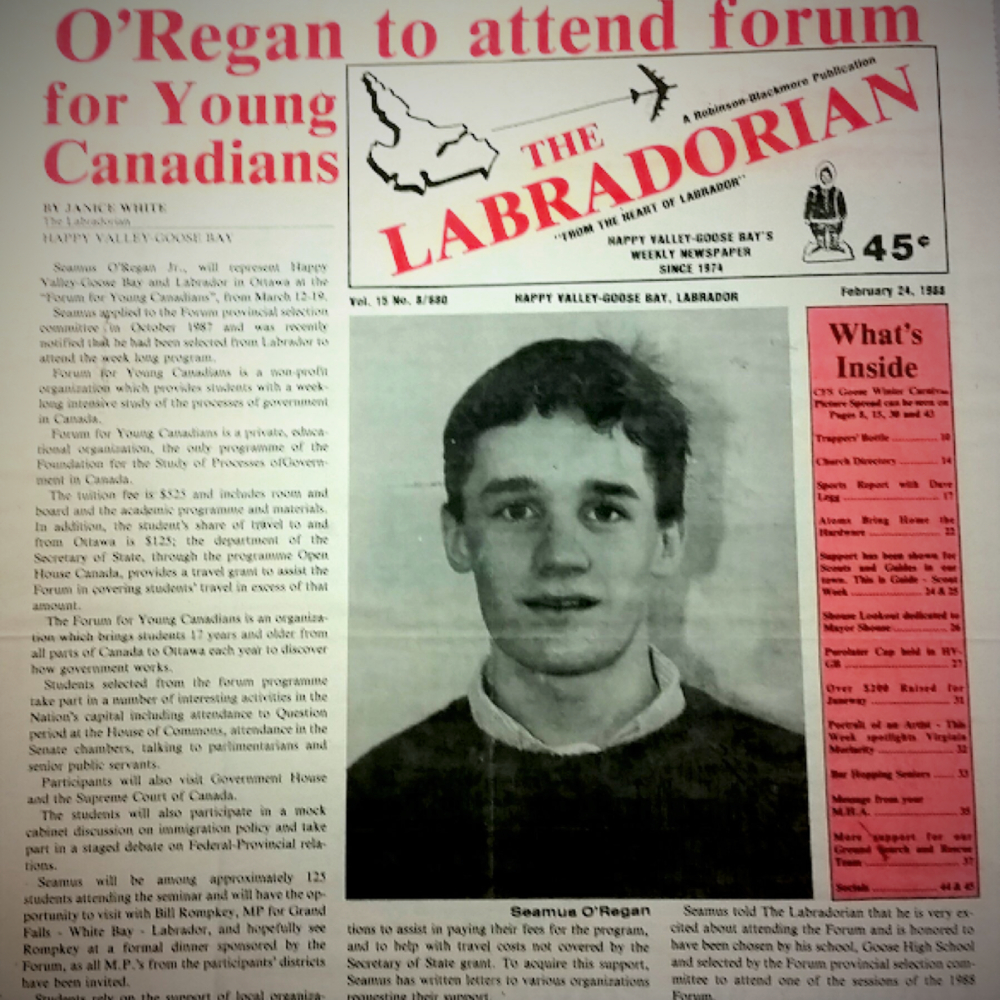
Seamus O’Regan Jr. grew up in a red house in Goose Bay, Labrador, spending 14 years there. He graduated from Goose High School. The view from his front window featured two other houses; the ubiquitous blue-green tree line off in the distance; and casting enchantment over the majestic austerity of it all, the otherworldly dance of the Northern Lights.
“The dog got impatient with me when I took him for walks. I would just stand there and stare up at those amazing lights. I was always a kid captured by the stars.”
These days the man who has the music of Aretha Franklin and Ella Fitzgerald on his cellphone (it might have been Radiohead in younger days) looks out the window at a very different scene than the one from his childhood home.
Now he has a stunning view of St. John’s Harbour from the Baine Johnston Building at the base of Signal Hill, where Marconi received the first transatlantic wireless message in 1901. Signal Hill, towering above the Narrows, is his favourite place. It is also the minister’s temporary base until life returns to “normal” in post-pandemic Ottawa — if it ever does. But whether in Ottawa or St. John’s, it is city lights rather than Northern Lights these days, and there is no time to walk the dog.
But the stargazer is still very much in evidence. O’Regan’s all-time favourite movie is Star Wars, which he saw as a boy with his father, Seamus O’Regan Sr.
His favourite book is The Three Body Problem, a science-fiction trilogy that Barack Obama said made him understand how small his presidential problems were. With Obama’s endorsement, and a few problems of his own to put into perspective, O’Regan thought it was worth taking a look at the Chinese masterpiece.
“I was knocked out by the book’s mind-blowing expansiveness. It knocked down every barrier.”
His very favourite pastime when he isn’t grappling with the nation’s problems?
“Watching my husband watch some really trashy TV late at night! We both work late and that’s what I like to do.”
The ostensible beginning of O’Regan’s political odyssey came in the run-up to the federal election of 2015. He was convinced in 2014 by a quartet of suitors — Justin Trudeau, Brian Tobin, Gerald Butts, and in the end, his own family, to run for parliament.
O’Regan had been in Trudeau’s wedding party in 2005, was personal friends with Butts, and once worked as a speechwriter and advisor to Brian Tobin, when the latter was premier of Newfoundland and Labrador.
O’Regan was there when Tobin ended the province’s denominational education system — a potentially ruinous leap into the political abyss, given the traditional role of religion in all aspects of the province. The government managed to pull it off.
O’Regan’s mother, Janet, was a nurse, and his father, Seamus Sr., a justice of the Supreme Court in his home province. He was also his son’s hero.
“People would kill for five minutes of my dad’s company, I got him for 50 years. It was never about him, always the people he was with. I’ve never met anybody like him. I know charisma, I know talkers, I know storytellers. In a culture of storytellers, dad was king.”
In the politics of 2014 to 2015, when the Liberals were set to joust with a three-term Conservative government, the Grits entered a political prince into the lists against then-prime minister Stephen Harper. But Justin Trudeau needed some knights in shining armour to support him. Seamus O’Regan fit the bill.
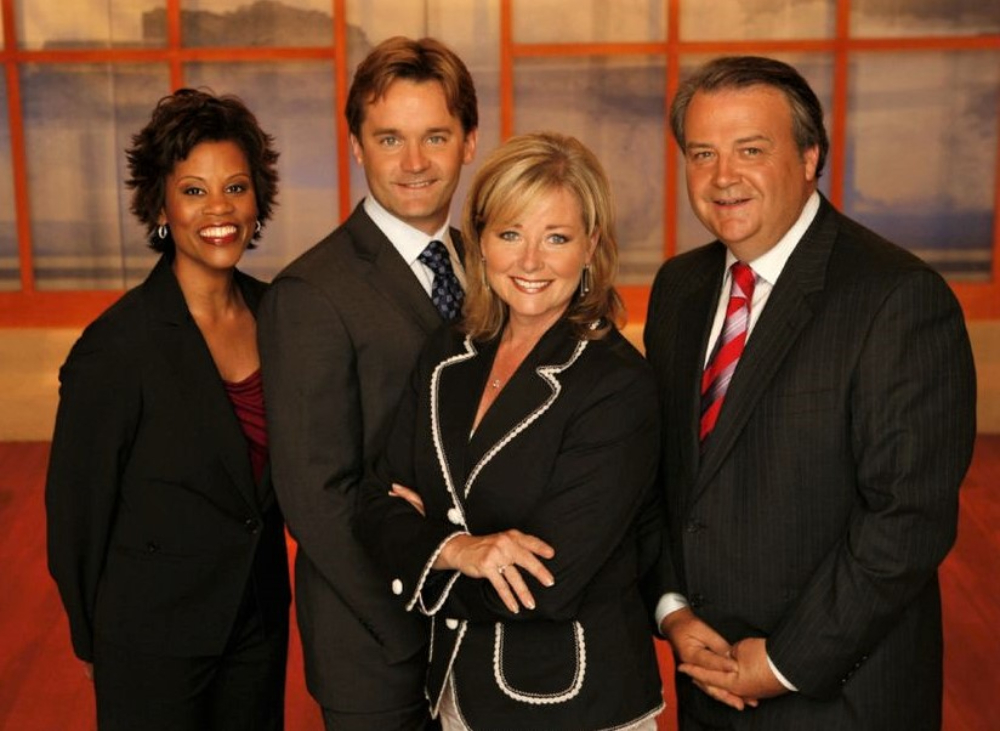
For 10 years, the boyish O’Regan had had breakfast with Canadians as co-host of Canada AM on CTV. Money will always be the mother’s milk of politics. But name recognition remains its Open-Sesame. A wide audience knew and liked the energetic presenter with the infectious smile.
“I always thought I would enter politics,” he told me. “The journalism was a surprise. Some of it just comes from having parents who remind you you’re blessed, and you have to give back. I got into public speaking in Grade Four. I won locally, and then found myself in Portland, Maine at the North American public-speaking championships. Along the way, I had a great teacher, Angela Clarke, who saw something in me.”
But the instrumental person in O’Regan’s developing worldview, ambitions, and values was his father. O’Regan Sr. was a big-time judge, but he was also a regular guy. He did all the cooking at home, and made the kids’ lunches for school. He was a rolled-up sleeves dad who loved parenting his three kids.
O’Regan Sr. taught Seamus by example that compassion is the handmaiden of authority. As a judge in Labrador, O’Regan Sr. was keenly aware of the enormous problems facing the local Innu population when they collided with a justice system designed for another culture.
It was hard for a man decked out in the pink sleeves and red sash of a senior judge not to look like a representative from the British Raj, just another colonial interloper. But O’Regan Sr. overcame appearances by blazing a new judicial trail. He disposed of cases in a way that sat well with the people of Nitassinan. He did it by tempering the law with compassion.
“Dad used conditional sentencing, working with community leaders and local businesses, to deal with these cases with great care. He would do anything to keep an Innu from going to jail.”
When Seamus O’Regan Sr. passed away last November, the Innu First Nation was quick to post its condolences on Twitter.
The O’Regan family had an abiding interest in Indigenous issues developed over the long years of living in Labrador. When Seamus was a boy, he and his father made the 30-kilometre trip north from Goose Bay to the Innu community of Sheshatshiu, meaning “narrow place in the river.” It was an experience that Seamus found both frightening and inspiring.
“Here we were living in that red house in Goose Bay with all the modern conveniences, while the Innu were enduring awful conditions just a few kilometres away. I thought to myself, ‘Something is fundamentally wrong here.’”
Through the influence of his father, and a few serendipitous twists of fate, Seamus got the chance to do something about it. He couldn’t know back then that he would one day be minister of Indigenous Services in the federal government. Returning from a judicial conference at Cambridge University, O’Regan Sr. told his son that he should attend the legendary school.
“He always had great ambitions for us, without pushing us in any direction. When he told me I needed to go to Cambridge, I said that I’d never get in. ‘Have you tried?’ he asked. So I applied and ended up being accepted. That’s where I wrote my master’s thesis. It was about Indigenous participation in large-scale resource developments.”
O’Regan also channelled his thespian side while in England, auditioning with the Royal Academy of Dramatic Arts. He read for the parts of two famous Henrys — “Henry” from Tom Stoppard’s drama The Real Thing; and Shakespeare’s immortal king of the Henry plays.
Even though O’Regan is intrinsically shy, he is also remarkably adept on the social circuit, the sort of person everyone wants to sit beside at the party. As former Liberal MP Dennis Mills put it to me, “Seamus O’Regan exudes a lot of things, but if I had to choose one word to describe him, it would be kindness.”
Another word would be conflicted.
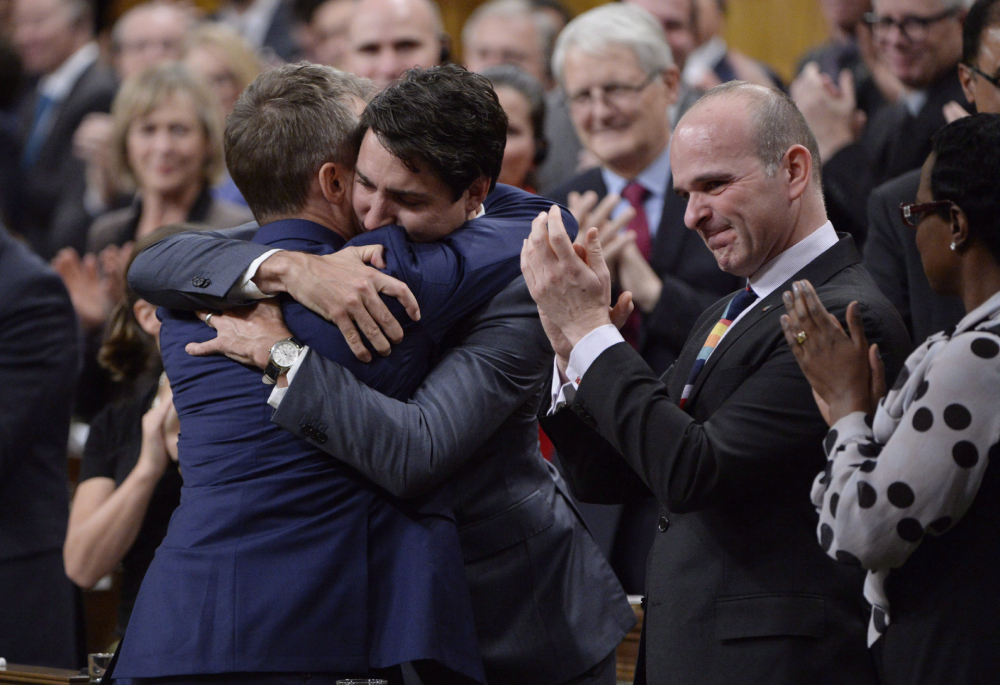
Despite a world of family love, privileged education and career success, part of O’Regan was sealed off, engaged in an internal soliloquy about who he really was. He wanted nothing more than to “fit in,” but not at the cost of performing in an endless emotional masquerade. When he attended St. Francis Xavier University in Antigonish, he wondered if the gay students he met there occupied a place that he could share.
“They were great, flamboyant, you know, cross-dressers, and generally extreme. But none of that was me. I don’t even like feather boas! So I thought there was no fit.”
O’Regan moved on with his TV career, surrounded with friends but oddly alone, his emotional life a convivial but closed attraction. His drinking steadily increased. After leaving CTV without a “safety net,” and watching fine journalists put out of work with no prospects, things got worse. He struggled with the root cause of his addiction.
From his own experience as a child growing up in Goose Bay, he already knew something about the perils of what Oscar Wilde’s partner, Lord Alfred “Bosie” Douglas called “the love that dare not speak its name.” He had heard the slurs against gays in the schoolyard in Goose Bay, though they were never directed at him.
And then there had been the day when his parents left Seamus and his brother with their grandmother, to make a special trip by themselves. The couple travelled to Eastport on Bonavista Bay to support a senior member of Newfoundland’s legal community who had been outed as gay. The man needed support, and the O’Regans intended to give it to him.
“So you see, the least of my worries coming out was my mom and my dad,” O’Regan told me. “I was 36 before I figured it out. I thought, ‘There is no fit, you are who you are, and you live your life.’ Dad was hugely relieved. He told me to own it, wear it, and hold my head up. And I think I made him proud. That is such an important thing when you love your father as much as I loved him.”
The epiphany that took him to personal happiness came at a party in downtown Toronto, where Seamus met Steve Doussis, who worked in the restaurant business. It was “love at first sight,” there were no more doubts, and O’Regan finally and fully became himself. The couple eventually got married on July 9, 2010 in Port Rexton, Newfoundland.
“Now gay marriages are the norm, but 10 years ago, it was relatively new,” he told me. “We got married in a ceremony where the only people present were immediate family. But the next weekend, we had a blow-out party that lasted for three days. I hosted the whole thing, and people came from across the country and all over the world.”
The celebrity attendees included Justin Trudeau, Rick Mercer, and some of O’Regan’s colleagues from his Canada AM days. There was a lot of star power on the streets of St. John’s. Everyone knew “Seamus and Steve,” and there were some memorable encounters with the legendary cab drivers of the city.
“Steven and I got into a cab, and the driver turned around and recognized us and said, ‘Boys, I don’t give a f*ck.’”
Another cabbie offered his congratulations before adding, “Seamus, if you got married in Toronto, we would have killed you.”
The finale of the wedding party took place at Middle Cove Beach, on a rare night in Newfoundland, 26 degrees C and windless. Seamus was standing on the cliff overlooking the ocean with a friend, when the six-foot high bonfire on the beach below them suddenly blew out “like a matchstick.” There was an audible “whoosh” and then the crying and wailing began.
The revellers had been hit by a rogue wave. Some of the wedding party were completely submerged, including two of O’Regan’s former colleagues from Canada AM. Luckily, another attendee, Stan Cook, dragged the waterlogged guests back to the beach.
In a lot of places, it would have been “Turn out the lights, the party’s over.” But this was Newfoundland, and the wedding bash quickly regrouped. Someone ordered Venice pizza, and then a hastily deployed fireworks display provided the necessary distraction. The near tragedy became just another part of an unforgettable night.
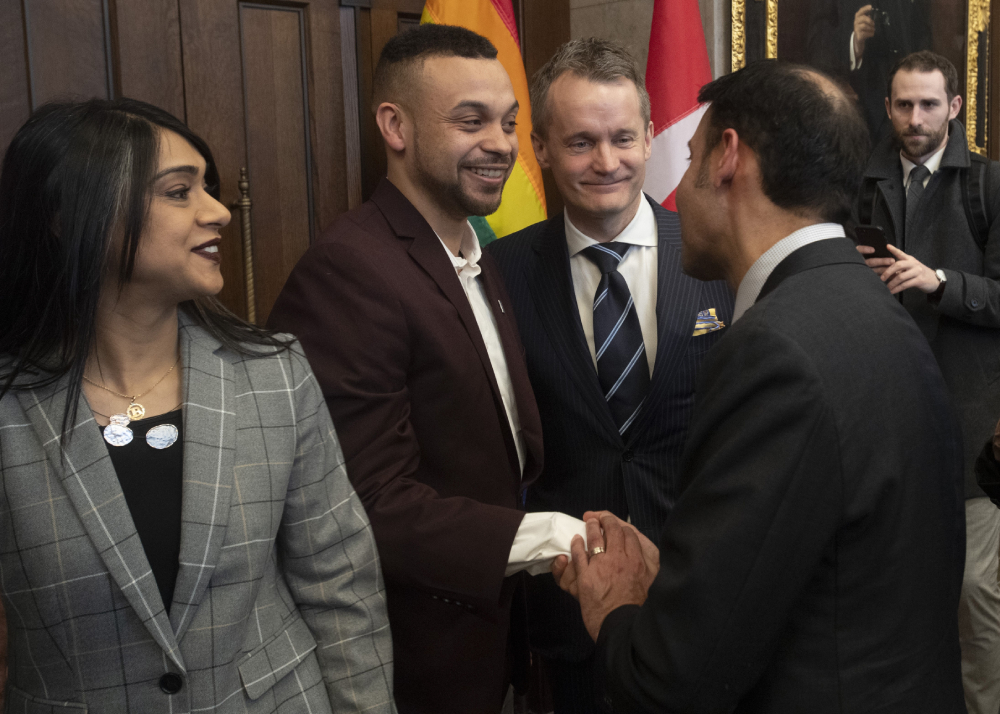
Through it all, O’Regan does not pretend to be a political trailblazer in the long battle for gay rights. Svend Robinson was the country’s first openly gay MP. Scott Brison was Canada’s first openly gay cabinet minister. O’Regan says that Brison’s 2007 marriage was “huge” for him.
But he does think that as a public figure, coming out helps more people than just the young men who worry about fitting in while feeling different, the way he had for so many years.
“You’re doing it for 14-year-olds, but also for their parents. There is often depression and anxiety in these matters. I didn’t feel shame about my sexuality, but I did feel shame about the drinking.”
On Jan. 3, 2016, O’Regan announced on Twitter that he was entering a 45-day wellness program with the goal of living an alcohol-free life. His husband, immediate family, and the prime minister were completely supportive. The decision made him accept a problem he had downplayed, as well as realize where it came from.
“It dawned on me. In therapy they confronted me with it. I drank, everybody drank, I thought. But it got worse when I wasn’t working. After Bell bought CTV, and I left, I had no safety net. I saw good people being let go with no prospects. That triggered me — but really where it came from was repressing my sexuality.”
A little over a year and a half later, with his drinking addiction behind him, a happily married O’Regan entered cabinet as Trudeau’s minister of veterans affairs. Since then, he has held two other cabinet posts — Indigenous services and now natural resources. It is shaping up to be his biggest challenge. So far what are the highlights and disappointments of his time in power?
“I mean you grow up on a military base, just outside one, my brother in the Navy, so I wear my heart on my sleeve for the Forces. I’m proud of bringing back a lifelong pension and introducing massive training and education legislation for veterans.”
And the things left undone on the political bucket list?
"Nobody could have screwed up Child and Family Services more than government over these past 100 years, at least with Indigenous Peoples. Let’s get back to looking after the kids.”*
And does the former journalist in any way miss the days when he was on the other side of the interview?
“Yeah, I do miss it. It was a privilege to just poke and press people. You know, I got to go see Prince perform and then interview him on television. It was incredible.”
An understandable nostalgia for a boy captured by the stars.
*Story updated on Feb. 16 at 10:11 a.m. to change quote for accuracy.
*Story corrected on Feb. 18 at 8:37 a.m. to correct 'Inuk' to 'Innu' in a quote. ![]()
Read more: Energy, Federal Politics


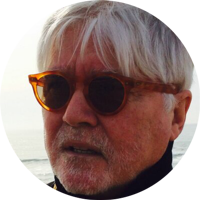
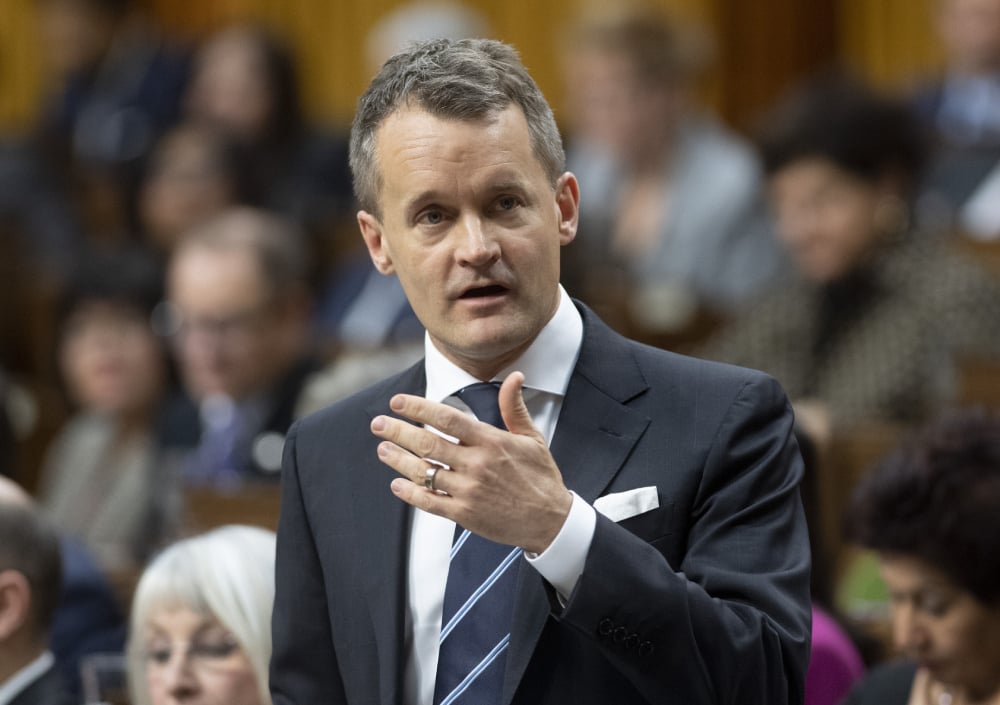












Tyee Commenting Guidelines
Comments that violate guidelines risk being deleted, and violations may result in a temporary or permanent user ban. Maintain the spirit of good conversation to stay in the discussion.
*Please note The Tyee is not a forum for spreading misinformation about COVID-19, denying its existence or minimizing its risk to public health.
Do:
Do not: